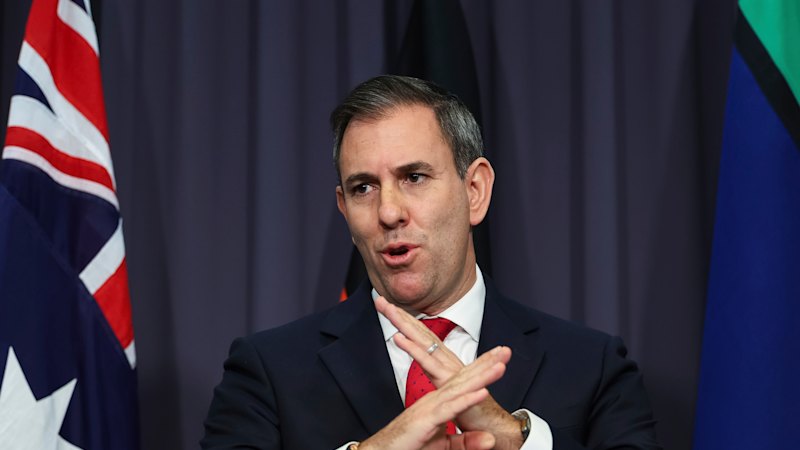
But Albanese has more quickly and explicitly shut down contentious ideas such as GST changes and other major tax reforms, whereas Chalmers’ approach has been to let ideas be debated, giving rise to questions about their different styles.
Attendees at the roundtable will include the head of the Productivity Commission, Danielle Wood, business sector leaders such as Bran Black and Andrew McKellar, union representatives Sally McManus and Michele O’Neil, Commonwealth Bank chief executive Matt Comyn and former Treasury secretary Ken Henry.
Chalmers and other senior ministers have had a series of industry discussions plus meetings with business and community leaders.
The treasurer revealed there were “half a dozen” or more ideas out of his own discussions that he has asked Treasury to investigate for their effect on the budget and economy.
He said the ideas out of the roundtable will influence the government’s entire second-term agenda, finding their ways into the next three budgets, playing down expectations of a suite of fully costed policies to be released on Thursday night.
“There might be changes that we can make in policy in the near term. But there’s no instant policy gratification in productivity,” he said.
“Thursday night will be an opportunity to pull the threads together to work out where there are some reform directions which are consistent with the government’s values, affordable and realistic and essential and to move forward from there.”
Greens’ senator Nick McKim says the government will need his party’s support to drive reform through the Senate.Credit: Alex Ellinghausen
Policy positions that come out of the roundtable will need to get through the parliament. While Albanese secured Labor’s largest-ever number of seats in the House of Representatives, he needs support from either the Greens or the Coalition in the Senate to pass legislation.
Greens’ Treasury spokesman Nick McKim said his party was prepared to back “progressive reforms” from the government but signalled he was looking for substantial changes around property and resource taxation and the impact of high effective marginal tax rates on women and young workers.
He said the government should ditch the petroleum resource rent tax and impose an export levy on coal and LNG, in a move he argued would raise revenue and curb greenhouse emissions.
Loading
A key change had to be made around the concessional rate of the capital gains tax, with McKim arguing it favoured high-income earners far more than the stage 3 personal income tax cuts that the government modified last term.
McKim said the government should work with the Greens on its post-economic roundtable agenda to get it through the parliament.
“This parliament is a unique opportunity. Labor and the Greens have the numbers in the Senate where we can deliver genuine progressive economic reform,” he told this masthead.
“The government has a large majority in the House, but it needs to work with us in the Senate. We can work collaboratively on progressive reform.”
Loading
The roundtable is not expected to issue a communique at its conclusion. Of the ministry, only Chalmers and Finance Minister Katy Gallagher will sit through the entire discussion, reducing the chance of any immediate approval from the government.
Ideas to reduce red tape, particularly in the housing sector, are expected to be quickly picked up. Before the roundtable, the Australian Securities and Investments Commission revealed it was reviewing a contentious regulation that superannuation funds argue has denied $10 billion worth of investment in up to 35,000 new homes.
ASIC was one of 38 regulators that Chalmers and Finance Minister Katy Gallagher contacted last month, looking for new ways to reduce red tape.
So far, regulators have proposed 280 actions, of which half have been put in place or are under way. The rest are new ideas.
State governments will be represented by NSW Treasurer Daniel Mookhey, the current head of the national committee of treasurers, which met on Friday.
They agreed to focus on four key areas, including faster approvals of major infrastructure projects, a reduction in red tape and regulatory overlap, a lift in competition reform, and speeding up the construction of new homes.
Cut through the noise of federal politics with news, views and expert analysis. Subscribers can sign up to our weekly Inside Politics newsletter.





